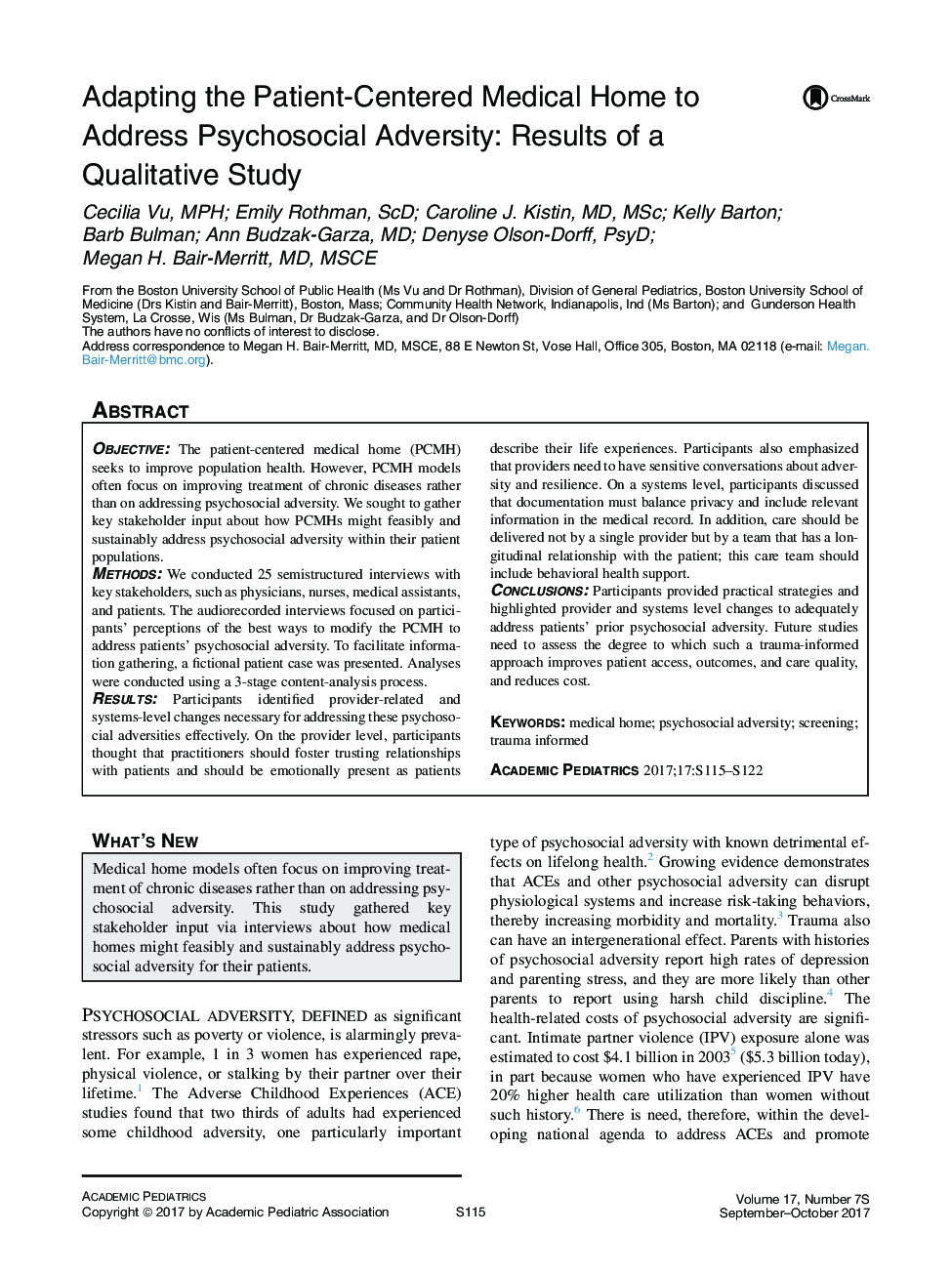| Article ID | Journal | Published Year | Pages | File Type |
|---|---|---|---|---|
| 5716829 | Academic Pediatrics | 2017 | 8 Pages |
ObjectiveThe patient-centered medical home (PCMH) seeks to improve population health. However, PCMH models often focus on improving treatment of chronic diseases rather than on addressing psychosocial adversity. We sought to gather key stakeholder input about how PCMHs might feasibly and sustainably address psychosocial adversity within their patient populations.MethodsWe conducted 25 semistructured interviews with key stakeholders, such as physicians, nurses, medical assistants, and patients. The audiorecorded interviews focused on participants' perceptions of the best ways to modify the PCMH to address patients' psychosocial adversity. To facilitate information gathering, a fictional patient case was presented. Analyses were conducted using a 3-stage content-analysis process.ResultsParticipants identified provider-related and systems-level changes necessary for addressing these psychosocial adversities effectively. On the provider level, participants thought that practitioners should foster trusting relationships with patients and should be emotionally present as patients describe their life experiences. Participants also emphasized that providers need to have sensitive conversations about adversity and resilience. On a systems level, participants discussed that documentation must balance privacy and include relevant information in the medical record. In addition, care should be delivered not by a single provider but by a team that has a longitudinal relationship with the patient; this care team should include behavioral health support.ConclusionsParticipants provided practical strategies and highlighted provider and systems level changes to adequately address patients' prior psychosocial adversity. Future studies need to assess the degree to which such a trauma-informed approach improves patient access, outcomes, and care quality, and reduces cost.
